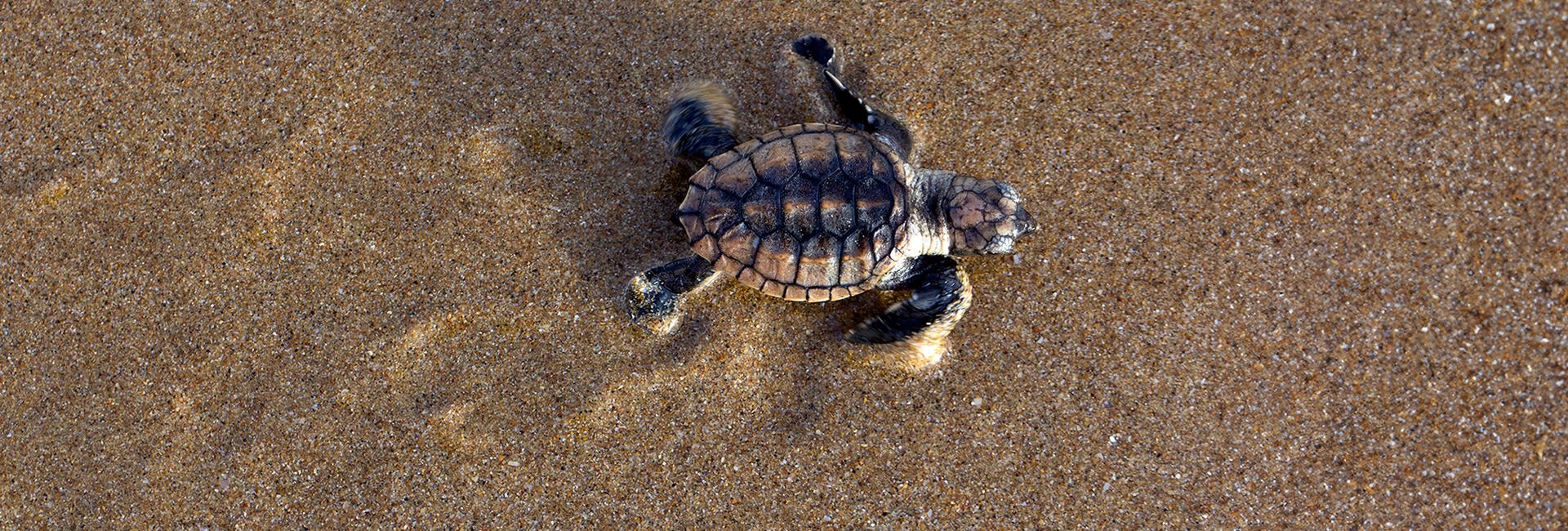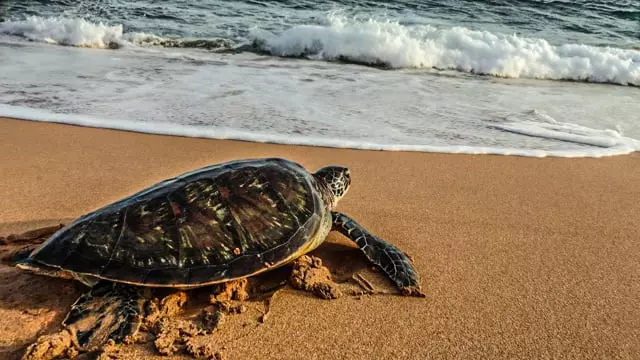
Turtles
Volunteer with Turtles
Join us on the beaches of Costa Rica or Sri Lanka to volunteer with turtles and help protect these ancient icons of the sea. Volunteers play a crucial role in sea turtle conservation by monitoring nesting turtles, collecting eggs, releasing hatchlings, conducting beach clean-ups, and educating local communities about the importance of turtles in the marine ecosystem.
With only an estimated 1 in 1,000 hatchlings surviving to adulthood and a barrage of threats that have seen all sea turtle species listed from vulnerable to critically endangered, turtle conservation is vitally important. As a turtle volunteer, you can help change the tide for these fascinating, gentle creatures, all while immersing yourself in the beauty of the coastal landscapes of Asia and Central America.

Projects Do More
7 - 84 Nights from $939.00
Take part on The Great Turtle Project in Sri Lanka as a volunteer in a turtle sanctuary and have an impact on the conservation of the country's beautiful sea turtles.
View project7 - 84 Nights from $1,074.00
Play your part in the conservation of Olive Ridley turtles, as well as other vulnerable and endangered wildlife species, in coastal Costa Rica.
View project15 - 85 Nights from $2,154.00
Experience real field research, coming face-to-face with a multitude of marine life while helping to protect a biodiverse marine paradise, including a coastal complex and wetland of international importance, home to The Bar Reef!
View projectOn the Blog
Turtle Information
Turtles At A Glance
Endangered Status
Dependent on Species - Ranging Vulnerable to Critically Endangered
Number remaining in the wild
Dependent on Species
Endemic Region
All Oceans Except the Polar Seas
There are seven species of sea turtles, of which two are critically endangered, one is endangered, three are vulnerable, and one is data deficient, as listed on the IUCN Red List:
- Kemp’s Ridley Turtle – Critically Endangered
- Hawksbill Turtle – Critically Endangered
- Green Turtle – Endangered
- Olive Ridley Turtle – Vulnerable
- Leatherback Turtle – Vulnerable
- Loggerhead Turtle – Vulnerable
- Flatback Turtle – Data Deficient
Sea turtles face several specific threats that impact their survival. Their primary threats include:
- Habitat Destruction: Coastal development, including the construction of buildings and infrastructures, destroys nesting beaches. Beach erosion and the destruction of coral reefs and seagrass beds, essential habitats for sea turtles, also contribute to habitat loss.
- Climate Change: Rising temperatures and sea levels, along with ocean acidification, pose significant risks to sea turtles. Higher sand temperatures at nesting sites can skew the sex ratios of hatchlings, as the sex is temperature-dependent during incubation. Climate change also alters ocean currents, affecting sea turtle migration and food availability.
- Pollution: Marine pollution, particularly plastic pollution, severely threatens sea turtles. They ingest plastic debris, mistaking it for food, which can cause internal injuries and death. Chemical pollutants like oil spills and pesticides contaminate their habitat and food sources.
- Bycatch: Sea turtles are often unintentionally caught in fishing gear such as nets, longlines, and trawls. This bycatch frequently leads to injury or death by drowning, as turtles need to surface to breathe.
- Illegal Trade and Poaching: Sea turtles and their eggs are harvested illegally for their meat and shells for use in traditional medicine and as delicacies.
- Light Pollution: Artificial lighting on beaches can disorient hatchlings, leading them away from the sea and towards danger. It can also discourage females from nesting, impacting reproduction rates.
- Predation: Eggs and hatchlings are especially vulnerable to predators such as birds, crabs, racoons, and dogs.
- Boat Strikes: Collisions with boats and ships can cause severe injuries or death to sea turtles. This threat is particularly prevalent in areas with high boat traffic.
Sea turtles can be found in all oceans except for the colder polar seas, this provides numerous opportunities to volunteer and work with turtles across the globe.
Here at The Great Projects, we offer various marine conservation projects in Asia, Africa, and Central America, where your efforts directly contribute to sea turtle conservation and other marine wildlife, as well as their habitats. Additionally, we have specifically focused turtle volunteer programs, allowing volunteers to work in turtle sanctuaries and hatcheries. These projects are located in Costa Rica and Sri Lanka, each with opposite turtle nesting and hatching seasons. So, if you're interested in volunteering with turtles, there's a project suitable for your schedule.
You can help turtles by protecting their habitats, reducing plastic use, and recycling properly to prevent litter from harming them. Advocate for turtle-friendly legislation, respect nesting areas, and educate others on the importance of turtle conservation. You can also adopt a turtle through conservation charities or volunteer to patrol nesting beaches, collect eggs, record data, release hatchlings, and educate local communities.
Several charities focus on turtle conservation, including the Sea Turtle Conservancy, Turtle Island Restoration Network, and SEE Turtles, which protect habitats, conduct research, and promote eco-tourism. The World Wildlife Fund and Marine Conservation Society also include turtles in their broader marine conservation efforts. These organisations work through advocacy, education, and direct action to aid turtle conservation globally.







